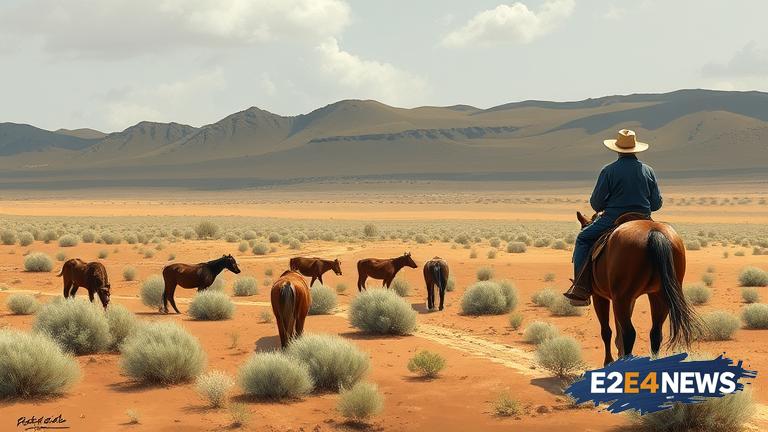Mexican ranchers are facing an unprecedented challenge as they struggle to adapt to the shrinking size of their land. The country’s agricultural industry, which has long been a staple of the economy, is being threatened by the increasing fragmentation of land. As a result, many ranchers are finding it difficult to maintain their livelihoods, with some being forced to abandon their farms altogether. The problem is exacerbated by the fact that many ranchers are aging, and their children are not interested in taking over the family business. This has led to a brain drain in the industry, as younger generations seek better opportunities in urban areas. Furthermore, the lack of access to credit and other resources has made it even more challenging for ranchers to adapt to the changing landscape. The Mexican government has implemented some initiatives to support ranchers, but more needs to be done to address the root causes of the problem. One of the main issues is the lack of clear land ownership, which has led to disputes and confusion over who has the right to use the land. Additionally, the increasing demand for land from urban developers and other industries has driven up prices, making it even more difficult for ranchers to afford the land they need. The impact of this trend is being felt across the country, with many rural communities struggling to survive. The loss of agricultural land is not only affecting the economy but also the environment, as natural habitats are being destroyed to make way for urban development. Moreover, the decline of the agricultural industry is also having a negative impact on food security, as the country becomes increasingly reliant on imports. To address this issue, the government needs to implement policies that support ranchers and encourage sustainable agriculture practices. This could include initiatives such as land reform, credit programs, and training for ranchers. Additionally, there needs to be a greater emphasis on preserving natural habitats and promoting eco-friendly farming practices. The private sector also has a role to play, by investing in sustainable agriculture and supporting local farmers. Ultimately, the future of Mexican ranchers and the country’s agricultural industry depends on the ability to adapt to the changing landscape and find innovative solutions to the challenges they face. The government, private sector, and civil society must work together to address the root causes of the problem and ensure a sustainable future for the industry. Mexican ranchers are resilient and resourceful, but they need support and resources to overcome the challenges they face. With the right policies and initiatives, it is possible to revitalize the agricultural industry and ensure a bright future for ranchers and rural communities. The time to act is now, as the fate of the industry and the livelihoods of thousands of people hang in the balance. The Mexican government and other stakeholders must take immediate action to address the crisis facing the agricultural industry. This includes providing support to ranchers, promoting sustainable agriculture practices, and preserving natural habitats. By working together, it is possible to create a more sustainable and equitable food system that benefits both people and the planet. The future of Mexican ranchers and the country’s agricultural industry is uncertain, but with the right support and resources, it is possible to build a brighter future for all.





